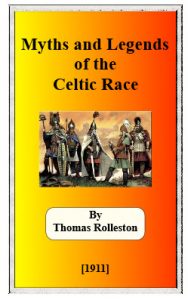THE Past may be forgotten, but it never dies. The elements which in the most remote times have entered into a nation’s composition endure through all its history, and help to mould that history, and to stamp the character and genius of the people.
The examination, therefore, of these elements, and the recognition, as far as possible, of the part they have actually contributed to the warp and weft of a nation’s life, must be a matter of no small interest and importance to those who realise that the present is the child of the past, and the future of the present; who will not regard themselves, their kinsfolk, and their fellow citizens as mere transitory phantoms, hurrying from darkness into darkness, but who know that, in them, a vast historic stream of national life is passing from its distant and mysterious origin towards a future which is largely conditioned by all the past wanderings of that human stream, but which is also, in no small degree, what they, by their courage, their patriotism, their knowledge, and their understanding, choose to make it.
The part played by the Celtic race as a formative influence in the history, the literature, and the art of the people inhabiting the British Islands – a people which from that centre has spread its dominions over so vast an area of the earth’s surface – has been unduly obscured in popular thought. For this the current use of the term “Anglo-Saxon” applied to the British people as a designation of race is largely responsible. Historically the term is quite misleading. There is nothing to justify this singling out of two Low-German tribes when we wish to indicate the race character of the British people. The use of it leads to such absurdities as that which the writer noticed not long ago, when the proposed elevation by the Pope of an Irish bishop to a cardinalate was described in an English newspaper as being prompted by the desire of the head of the Catholic Church to pay a compliment to “the Anglo-Saxon race.”
